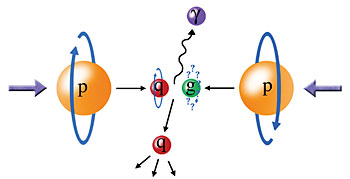
When I first came across the term “Natural Computing” my initial thoughts were like ‘is this something like organic food – just for computing?’ – I was quite surprised to discover, that it covers some of the future computing technologies that I have been following on the side for more than a decade: Quantum Computing and DNA-based Computing.
Overview
Natural computing covers the areas of Cellular Automata, Neural Computation, Evolutionary Computation, Molecular Computing, and Quantum Computing. All of these being primarily research areas with not so many practical applications as of now.
Structure
In the following, I will try to give a brief overview of Natural Computing and in the end, try to give some hints as to how some of the research can be used today to enhance the way we build computer-based systems.
In later posts I will dig a little deeper into some of the research areas of Natural Computing.
Different Research Areas
Natural Computing consists of two fundamentally different fields of research:
- Computing paradigms inspired by nature
- Computing taking place in nature
The first can be further subdivided into two areas:
- Creating algorithms inspired by observations of nature
- Replacing traditional electronic hardware with other mechanisms of computation
Neural Computation
The oldest research area within Natural Computing is probably Neural Computation or computing inspired by the neural networks in the human brain (part of area 1a). It is also the only area in widespread use in the practical world as most AI solutions are based on neural networks.
Other Computing Paradigms
Other ways of creating algorithms inspired by nature include:
- Swarm Intelligence inspired by the behavior of groups of organisms like an ant colony
- Cellular Automata inspired by intercellular communication
- Evolutionary Computation inspired by Darwin’s evolution of the species theory
- Amorphous Computing inspired by morphogenesis
- Membrane Computing inspired by the way cells process information
- Artificial Immune Systems inspired by the natural immune system
- Artificial Life Systems inspired by the properties of life in general
Replacing Electronic Computation
There are two areas of research for replacing traditional electronic computing hardware: Molecular Computing and Quantum Computing.

In Molecular Computing the tools of molecular biology are used to transform data encoded as biomolecules and in quantum computing the idea is to use quantum mechanical phenomena to perform computations.

Computing Taking Place in Nature
The field of studying computing taking place in nature could on the surface look like a minor variation in the just mentioned research areas. There is a big difference in simulating a neural network in traditional computer hardware and researching how the brain’s neural network actually handles information, though.
Other areas within the field of computing taking place in nature are self-assembly, developmental processes, biochemical reactions, bacterial communication, brain processes, and bionetworks.
What Can We Use Today?
Today we see many implementations of Neural Computation often hidden under the names of AI, Machine Learning, Deep Learning etc.
You could adapt your AI approach by introducing mechanisms observed in the study of Evolutionary Computation. Imagine an AI solution where mutations are applied at random points and the best version is used going forward. This way predictions could potentially learn to work across major changes like e.g. the Corona Pandemic without programmers to retrain for the crisis and again retrain for the recovery and for the new normal expected to appear later.
In Some (few?) Years
You cannot use Quantum Computation for real-world problems yet. We do see use cases for it’s future application is piling up though, e.g. cryptography, optimization within logistics, etc.
The potential benefits of Molecular Computation may not be as well understood yet. To some extent due to its slowness compared to the traditional computation paradigm. But it could prove to have some advantages when it comes to the use of energy and the form of energy needed. Another potential benefit is for storing large volumes of data for long periods of time. In theory, you could transcribe all words spoken and written during the existence of the planet earth into DNA molecules. That DNA material would roughly fit into a volume of one cubic meter. If you freeze it, you could store it “forever”.
Other Ideas…
Maybe other areas could quickly benefit from aspects of Natural Computing e.g. Malware protection adapted with artificial immune system features.
What do you think we should look at to get benefits in a short time frame? – Please comment.

 English | EN
English | EN 